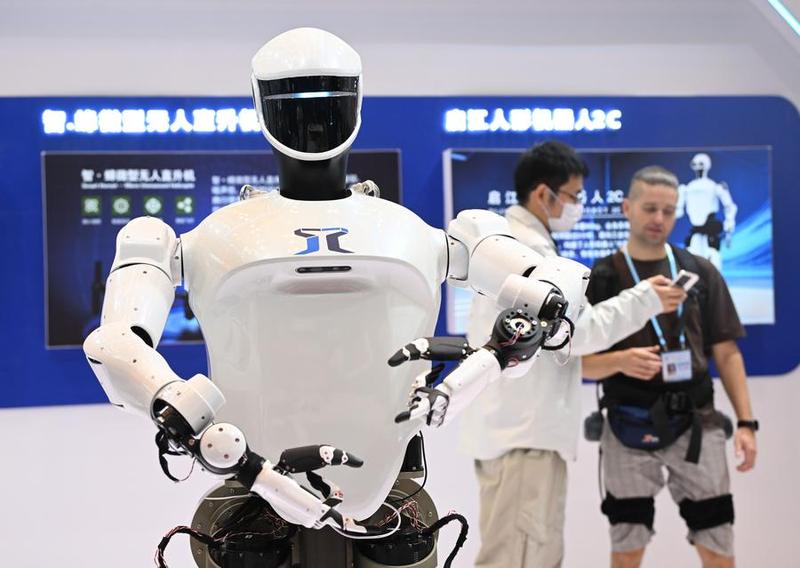For decades, China was seen primarily as a manufacturing powerhouse, the "world's factory" known for producing low-cost goods. Today, China is not just catching up with global innovation leaders, it's setting the pace in several critical sectors, including artificial intelligence, electric vehicles, green energy, and digital platforms. The country's shift from imitator to innovator represents one of the most significant economic transformations of the 21st century.
This evolution has been driven by a mix of strategic planning, substantial investment, and an increasingly competitive domestic market. Over the past decade, the Chinese government has made innovation a cornerstone of national development. Massive state funding has been directed toward research and development, with China investing over 3.6 trillion yuan ($50.5 billion) in R&D in 2024.

This photo taken on Oct 15, 2025 shows a humanoid robot at the Service Robots Zone during the 138th edition of the China Import and Export Fair (Canton Fair) in Guangzhou, South China's Guangdong province. (Photo/Xinhua)
Evidence of China's innovation momentum is everywhere. The country has led the world in international patent filings since 2019. More importantly, the nature of these patents has shifted from mere adaptations of existing technologies to groundbreaking work in fields like quantum computing, 5G, and renewable energy. Chinese universities and research institutions have also made rapid progress, with top institutions such as Tsinghua and Peking University now appearing regularly in global rankings for science and engineering.
Chinese companies that once imitated their Western counterparts are now reshaping global markets. Huawei has emerged as a leader in telecommunications infrastructure while BYD is outpacing global electric vehicle rivals in both innovation and sales. In the digital realm, platforms like TikTok, developed by Beijing-based ByteDance, have revolutionized global social media with algorithmic models that many Western firms are now trying to emulate. Meanwhile, China's e-commerce ecosystem, led by companies like Alibaba and JD.com, is the most sophisticated in the world, with integrated logistics, digital payments, and AI-driven personalization that surpass many global benchmarks.
China's growing army of innovators is supported by an immense pool of technical talent. The country graduates more STEM professionals annually than any other nation and is successfully attracting back overseas-trained scientists through lucrative funding programs and modern research facilities. The government's long-term focus on education and technological self-reliance has created an ecosystem where homegrown breakthroughs are increasingly common and globally competitive.
China's rise as a global innovation leader is no longer a question of "if," but "how fast." The world is witnessing a shift in technological gravity, as breakthroughs increasingly originate not just in Silicon Valley or Berlin, but in Shenzhen, Hangzhou, and other Chinese tech hubs. Far from being a nation of copycats, China is now shaping the future and the rest of the world is taking notes
(Source: People's Daily)
